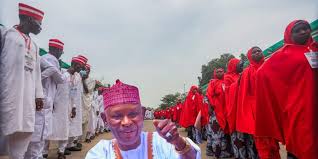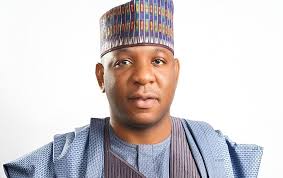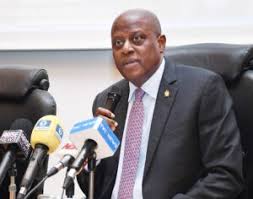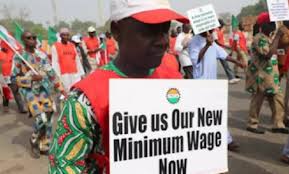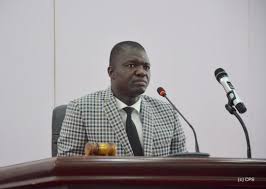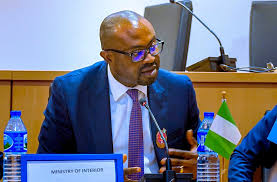Kano State government has earmarked N2.5 billion for mass weddings across its 44 Local Government Areas .
Commissioner for Planning and Budget, Musa Shanono, said this while breaking down the state’s N719.7 billion budget for 2025.
Shanono also said the sum of N4 billion was set aside for free education programme and N2.2 billion for free school feeding scheme.
He said the education sector received N205.9 billion, which would represent 29 percent of the total budget.
His words: “The proposed budget had a total size of N549, 1 billion as presented to the state House of Assembly. The House, in line with the provision of the law has gone into the processes of scrutiny, consultations and public hearing. The budget was passed into Law on Thursday, December 20, 2024, and assented by the governor on December 31, 2024. The 2025 approved budget has a total size of N719,7 billion , representing an increase of N170,595,000,000 equivalents of 31 per cent over what was initially submitted by His Excellency to the State House of Assembly. The Total Recurrent expenditure is N262.6 billion and the total capital expenditure is N457 billion.
“The ratio of recurrent to capital expenditure is 36:64. The Budget is higher than 2024 by N282,4 billion which represents a 65 percent increase.
The approved budget is above the state projected available resources as contained in the 2025 – 2027 Medium Term Expenditure Frameworks, MTEF, due to improvement of new Sources of Revenue from FAAC as a result of subsidy removal and other capital receipts.
“The total approved Recurrent Revenue for the fiscal year 2025 budget stands at N617 billion consisting of N85.8 billion Internally Generated Revenue (IGR) and N531billion expected revenues from Federation Account Allocation Committee, FAAC, as against the 2024 Total recurrent revenue of N 379.7 billion. By extension, the 2025 recurrent revenue is higher than that of the year 2024 by 237 Million representing an increase of 62.5 percent. It is equally important to note that the projected Internally Generated Revenue (IGR) is less than that of 2024 by N16 billion representing 15.8 percent decrease. Capital receipts for the year 2025 stands at N73.7 billion While the Treasury Opening Balance is to the tune of N29 billion.
